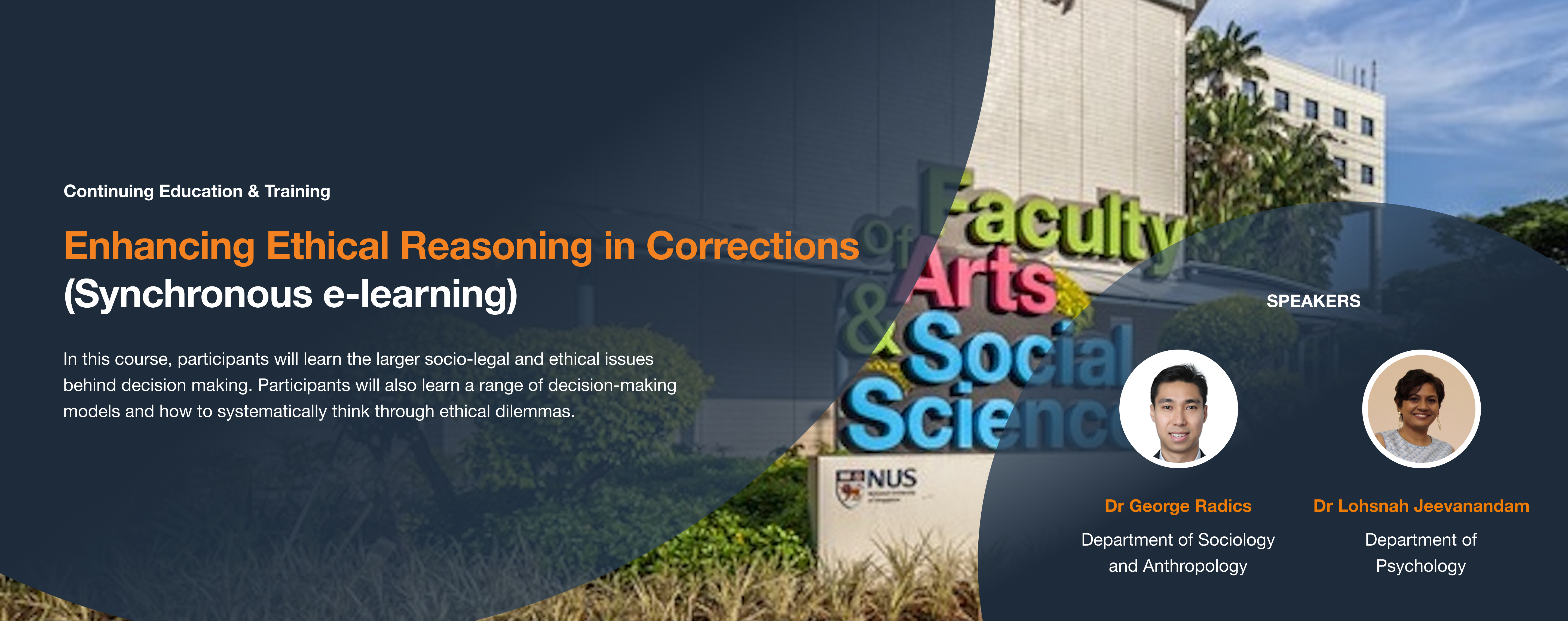Continuing Education & Training

Course Information
Course Dates
1. 06 - 07 January 2026
2. 21 - 22 April 2026
Course Information
Two full days, from 9:00 a.m. to 5:30 p.m via Zoom.
Course Fee
$1,700.00* excluding GST
(*with 30% fee rebate)

Course Objectives
1. Understand ethical reasoning and decision-making guidelines.
2. Understand how to identify ethical issues.
3. Apply guidelines to relevant contexts
4. Be familiar with general ethical principles.
5. Learn ethical-decision making models.
6. Aware of which stakeholders to work with.
Entry Requirements
Degree holders of relevant background, uniformed officers who focus on supervision, or rehabilitation specialists with at least three years’ experience.
Course Instructors

Dr George Radics
Department of Sociology and Anthropology
Dr. George Radics received his PhD from the Department of Sociology and Anthropology at the National University of Singapore. He currently teaches Law in Society, Selected Topics in Law and Justice, Social Thought and Social Theory, and Sociology of Emotions. After receiving his PhD, Dr. Radics studied law at the University of Washington, where he obtained his law degree with a concentration in Asian law. Dr. Radics served as a research attorney at the Supreme Court of Guam for two years after graduating from law school. His interests are law and minorities, sociology of the law, criminal law, sociology of emotions, postcolonial studies, and Southeast Asia.

Dr Lohsnah Jeevanandam
Department of Psychology
Senior Lecturer
Director of Clinical Psychology Programme
D.Clin.Psych (Queensland), BA (Hons) (Sydney)
Research interests:
•Developmental disabilities
•Dual diagnosis
•Behavioral modification
•Parenting programmes
Recent/Representative Publications:
• Jeevanandam, L. (2009). Perspectives of intellectual disability in Asia: Epidemiology, policy, and services for children and adults. Current Opinion in Psychiatry, 22, 462-468.
• Jeevanandam, L. & Oei, T.P. (2010). Service providers working with persons with intellectual disability: Burnout, coping, self-efficacy, attitudes, and psychological well-being. LAP Lambert Academic Publishing: Germany.

